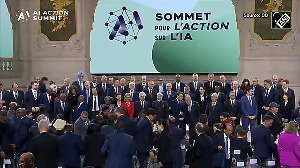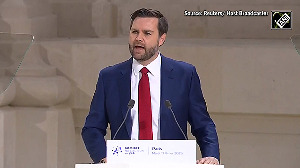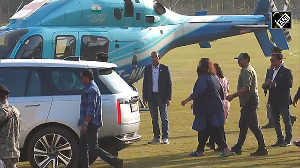"Subsidies are distortions, tariffs are not," the Union Minister for Commerce Kamal Nath told reporters here. "So, we need to correct subsidies and while subsidies are being corrected I don't see there needs to be an exchange rate in correcting distortions and looking for tariffs," he said at the Embassy of India.
"Where India is concerned is that we have low tariffs, so our position may be more flexible, but we must go by our groups. The group formations are very important and that's what we will be doing," the Minister said.
He, however, said India will continue to push for a successful conclusion to the Doha Round of trade talks. "The US must also be demonstrating because this town says effective cuts in trade distortions. What does that mean? Effective cuts does not mean the right to be able to increase your subsidies," he said.
"The G-20 offer (on agricultural subsidies) is 12.1. That's where it stands at the moment. There was a big gap between 12.1 and 17. Now since the US wants some headroom, there are countries which say that if you want headroom in your distortion, we want headroom in our tariffs," Nath said.
"So you can't have headroom for distortions without having headroom for tariffs and if market access of subsidised products is very different from market access to agricultural products," the Minister said.
Nath would not get into the specifics of what India is offering on the NAMA, non-agricultural market access negotiations but maintained that when negotiations on commerce is taking place, it cannot be negotiations over distortions.
"What was offered was based on what was on the table. Certainly all countries will have flexibilities but flexibilities are contingent upon other things," Nath said.
"When you are negotiating commerce, there is an exchange rate, but when you are negotiating livelihood security, you are not negotiating commerce. When you are negotiating distortions, you are not negotiating commerce," the Minister maintained making the point that NAMA has to be discussed as a stand alone with market access.
"The framework agreement talks of less than full reciprocity and whatever percentage cuts the developed countries take, I would take 10 per cent less. But the way they want it they want us to do double the cuts they are doing. I am happy to do 10 per cent more cuts than what the developed countries want to do, if that is acceptable to them," he said.
"At the end of the day, what is the reduction rate?... But let them say what they are willing to do. But they can't say I'll do 25, you do 50," Nath maintained. The Indian Minister disputed the notion that no consensus came out of Potsdam pointing out that there was indeed the consensus on food aid, disciplines and export competition.
"...But there are headline issues which are Trade Distorting Support (TDS), product specific gaps. At the end of the every formula...has to translate into something. If you reduce your subsidies but do not have product specific caps, it may not be good for Brazil," Nath added.
"It is not that it's only India or Brazil, there is Australia and Canada, and the European Union won't also do it until they find reciprocity by the United States," Nath said. Earlier at the Carnegie Endowment Nath made the argument that India very much seeks to strengthen the rules based international system as it was "extremely crucial" for the country to strengthen the rules based system and the edifice of the WTO.
"Which other country than India would want this?" Nath posed pointing to the enormous challenges of the country where some 350 million people lived on less than USD one a day and 80 per cent of the agricultural population living on subsistence agriculture. A country like India is "batting for protection of livelihood," he said.
There is a lot of difference between the Uruguay Round and the present Doha Round as presently a lot of countries want to be engaged as opposed to a "handful" during the earlier scheme of things," he said. Nath said that his advice to the United States Trade Representative is not just to talk to India "but to thirty or forty other countries".
"I believe that there is determination. All countries recognise the importance of a rule based trading system," Nath added.






 © 2025
© 2025